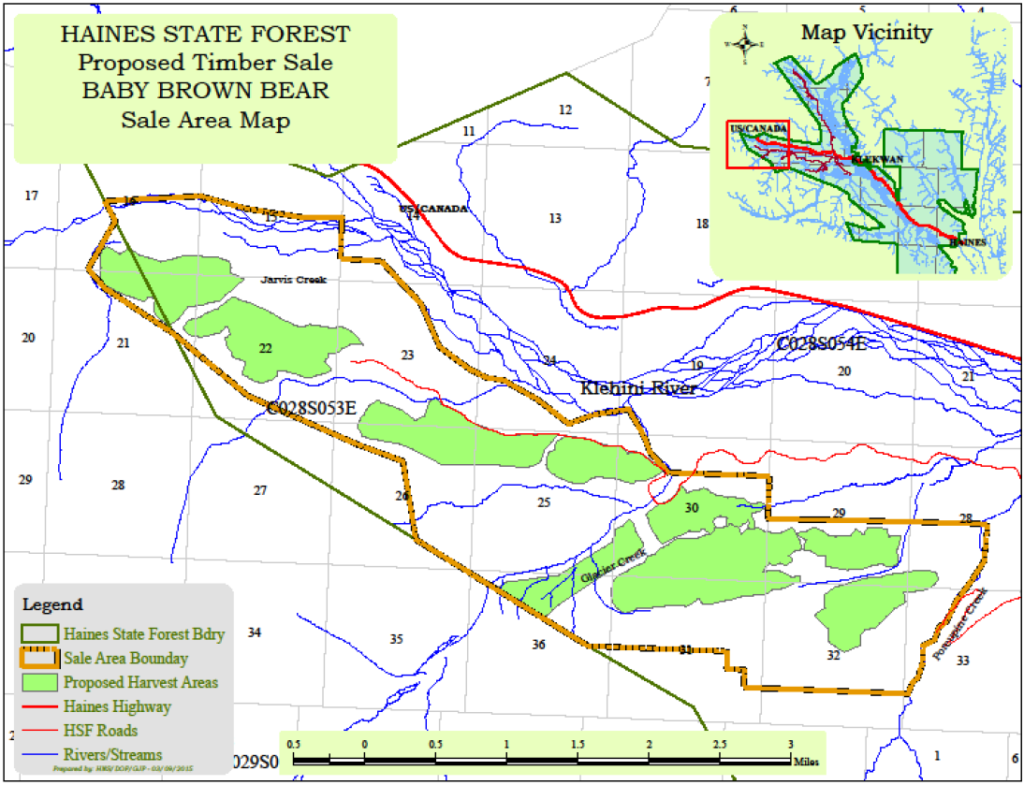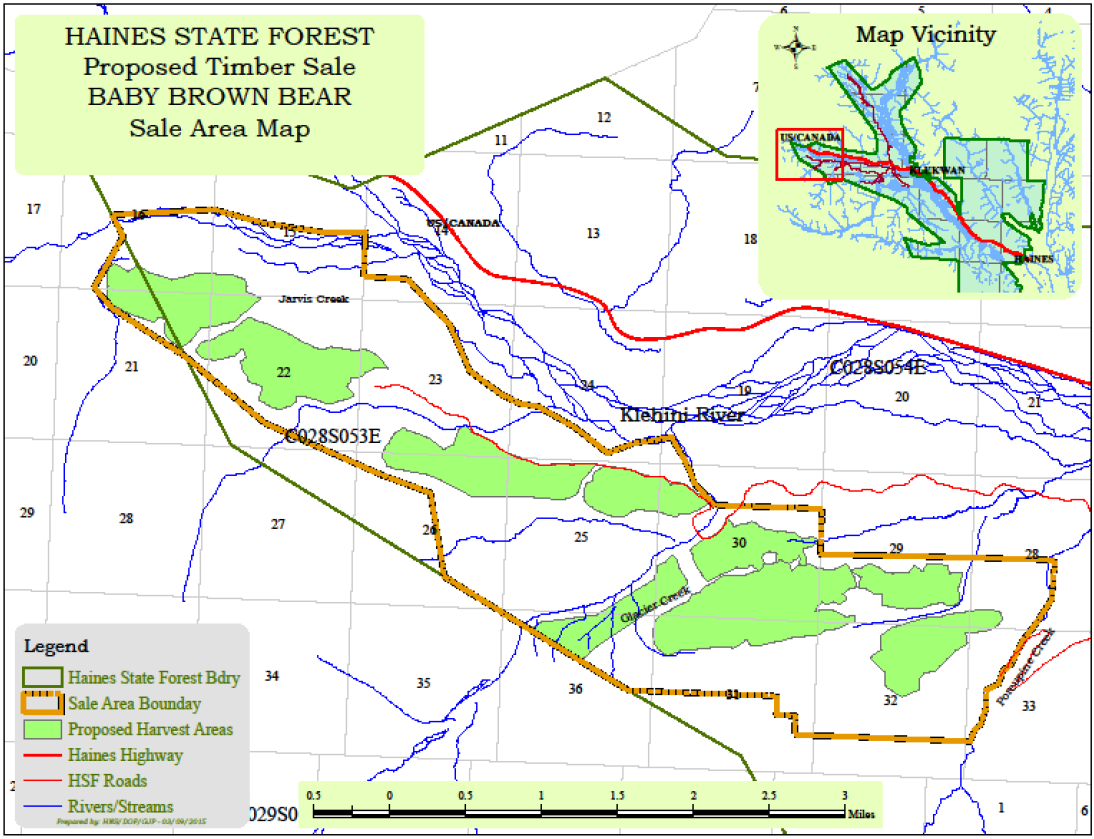
The Baby Brown sale area.
The largest potential timber sale in the Haines State Forest in a generation is on hold. Department of Natural Resources Commissioner Andrew Mack is canceling the sale as currently offered. He agreed with a conservation group’s argument that the public process was flawed.
The Baby Brown timber sale was on its way to harvest. Oregon-based Astoria Forest Products offered $270,000 for the 20 million board feet of old-growth spruce and hemlock. As the only bidder, they were successful.
But before the contract was finalized, there was one more challenge. Lynn Canal Conservation appealed the sale’s forest land use plan.
Forest land use plans, also known as FLUPs, are one of the final steps before a harvest moves forward. They lay out site-specific guidelines like harvest methods and mitigation measures. It’s also a final opportunity for public comment and agency consultation.
Baby Brown encompasses 855 acres. But Forestry drew up a land use plan for only 137 acres before putting the sale out to bid. LCC argued that the sale should not have gone to bid until land use plans were complete for the entire area.
Developing land use plans requires boots-on-the-ground work. Regional Forester Tim Dabney says his staff wanted to complete the Baby Brown plans gradually because of access issues.
“It would have been more efficient for us to access the farther-reaching units as the timber sale and the road construction accessing the timber sale units was done,” Dabney said.
But LCC said the piecemeal strategy degrades the public process.
That argument was successful. In a brief letter to LCC’s lawyer, Commissioner Mack writes that the appropriate process would have been to complete the remaining land use plans prior to offering the sale.
Read Mack’s appeal decision here
“I’m very glad that they have taken a step back,” said LCC board member Cary Weishahn. “They’re going to cancel the timber sale that was underway and they’re going to complete a FLUP for the entire timber sale.”
Mack says he is canceling the timber sale as currently proposed. That doesn’t mean it won’t go forward in the future, but it does mean the pending contract will not get approval.
Mack is also directing foresters to complete the remaining land use plans before putting the harvest up for bid again.
But forester Dabney says his department still believes it has the legal authority put a timber sale out to bid before completing all the land use plans. He says the commissioner’s decision came down to a commitment lined out in earlier documents.
In 2015, LCC and other conservation groups appealed the Baby Brown best interest finding. That challenge was unsuccessful.
Dabney says when the commissioner looked back at the appeal denial letter and the best interest finding, his interpretation was that the documents made a commitment to complete land use plans for the entire area before the sale is offered. Dabney says somehow, that direction was lost in communication.
“The commissioner’s letter said that we were going to do the FLUPs before we offered the sale,” Dabney said. “And that was the key area…they did not quite grasp that. That was a significant piece of miscommunication.”
A spokesperson from Commissioner Mack’s office confirmed Dabney’s characterization.
Even though LCC earned a victory with its procedural appeal, that doesn’t mean the Baby Brown sale is off the table. Dabney says foresters are working on developing the other land use plans right now and they should be done by the fall.
But before the FLUPs are approved, they’ll go to another round of public and agency review. And LCC’s Weishahn says they will look closely at those details.
“Because this timber sale is such a large one and it impacts such a large area of the Klehini watershed, with the agency and public review of the entire sale there will be a better opportunity to address the issues that the size of this sale will have on the environment and the watershed,” Weishahn said.
The local conservation group’s stance is that the Baby Brown timber sale is not in Haines’ or the state’s economic interest, that it would be harmful to the environment and leave an ugly scar on the landscape.










Surprise surprise…